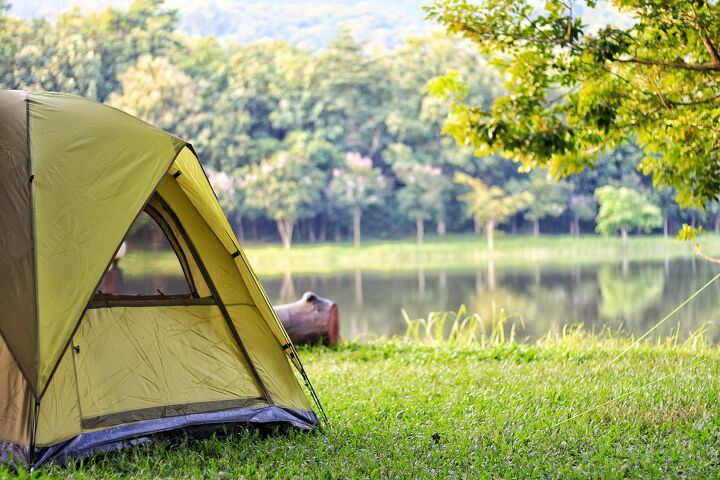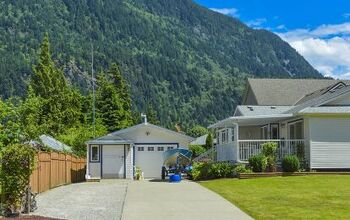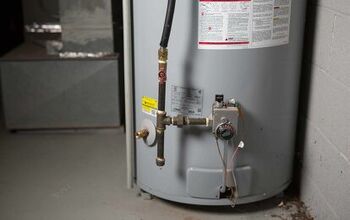Can You Camp On Your Own Property? (Find Out Now!)

These days it can seem like a federal agent could potentially kick down your door for sneezing over three times a day. Regardless, those regulations exist for a reason. One of those regulations has us asking if we can camp on your own property.
Camping on your own property long-term is illegal. You can camp on your own property for no more than 14 days in most places in the US. If you plan to camp on your property longer than two weeks, you need a long-term camping permit, which can be difficult to obtain.
Below, we will get into some details behind why you may not be able to camp beyond two weeks. While it might seem a bit weird since it’s your own land, there is some reasoning behind it.
Why Can’t You Camp On Your Own Property Long-Term?
Based on some perspectives, choosing to camp on your property is harmless. If it is your property, why should anyone have the right to tell you to want to do? However, residents in Park County, Colorado, lived through a form of this experience in 2016.
During this hearing, residents took the court to express their concerns about people camping in residential spaces. Due to the regulatory grey area, it was hard to enforce this matter. Local campers littered the ground with garbage with little disregard for the beauty of their surroundings. Residents went as far as to complain about the smell from these locations.
Local fire department representatives cited potential fire concerns due to flying garbage. They treated these campers as permanent residents and reaped the lack of need to pay property taxes.
Your Local Government Doesn’t Like The Idea Of Off-Grid Living
When you camp, the idea is you’re trying to live off-grid — with no utilities to pay, like electricity, water, and so forth. People might heat up food by campfire, run electricity with solar panels, or use pumps that recycle water. No matter how you do it, when you employ these techniques, you aren’t using county services, and you aren’t paying them either.
Depending on where you live, the county might require you to hook up to things like city water, electricity, and the septic system. This initial hook-up of water alone can cost as much as $15,000. Starting to see why they might not like the idea of you living off the land?
Where Can You Camp On Your Own Property Legally?
Depending on where you put your tent, you can feasibly live in a tent legally. However, this comes from the allowance from your state. Check out this table below to see the regulations in your state.
| State | How Long Can I Camp On My Property? |
| California | 14 days without a permit |
| Colorado | Six months or less |
| Oregon | 120 days max (depending on the district) |
| Michigan | Two months (depending on zoning) |
| Most other states | 14 days (depending on zoning requirements) |
Many states have restrictions on camping on your land due to residence requirements. For example, many of them require specific sanitary and trash disposal requirements.
If an officer stops you, “I didn’t know” is not the right answer. It is up to you to inform yourself about local requirements before camping on your property. As you can see, they do not take issue if you plan on camping for shorter periods.
If you plan on camping for more than two weeks, you should start being concerned.
Can You Camp On Your Own Property In An RV?
Many states still require permits if you wish to camp temporarily on your property. Given that we are still talking about camping, states require you to disburse after a certain period.
It also concerns if you apply that to long-term camping, which brings us back to the issue in Colorado. Residents may have a problem with you staying there in such an unconventional way.
Even assuming you are the best neighbor in the world, others may want to see structures built there. Even the best RVs won’t be as beautiful as a standard house. So, unless your property overlaps with a campground zoned for RV camping (highly unlikely), you won’t be able to camp there.
If you want to be a long-term RV camper, check into your county’s limitations. You might be able to get around the issue with certain loopholes, like moving your RV every so often, so you aren’t on your property the entire time.
But, be careful before doing something like this. The rules can get sticky and tricky. Plus, if you do decide to go this route, be sure you have access to what you need, like water, sewage, and ample amounts of propane heat.
What If You Build A Small Cabin? Then Can You Camp On Your Own Property?
Many people assume that living in a solid structure, like a cabin, won’t count as camping. However, it’s not that simple. There are rules and zoning ordinances for dwellings, too.
Many counties require a home to be a minimum square footage. Depending on where you live, this number could be somewhere between 500 and 1,000 square feet. This is why people who seek to live in tiny houses, which are typically 400 square feet or less, run into many issues.
So, if your goal is to erect a small 200-square foot cabin on your property, you likely won’t get a permit to build it in the first place. You could look into getting a variance, but this is extremely hard to acquire. A variance is basically an exception to the permit requirements, but you often have to go through a hefty approval process.
Is It Legal To Camp In Your Backyard?
Many city ordinances have restrictions against residential tents. These are in place to address the homeless population, which isn’t a pleasant thing to hear.
In many cases, parents like to do this with their kids to give them the idea of camping. If your neighbors are the understanding type, you can probably keep your tent up for a couple of days with little issues.
If your RV is in your backyard, most officials will think you are using this spot as a storage space for your RV. An issue only arises if your neighbors think someone is living out of your RV, which brings up concerns of your RV being a permanent residence.
Purchasing Property In A Remote Location Can Help You Avoid Some Regulations
If you want to avoid many of the regulations about camping on your property, purchase property in a remote location. The Colorado case we cited above had involved permanently living on private property nearby a community.
It does not mean you should assume you can behave like living in a remote location is like being in international waters. You still have a responsibility to clean up after yourself. Failure to do this will result in someone eventually reporting you.
No place in the states is entirely isolated. Still, there are fewer regulations as you step outside of heavily populated areas. Keep this in mind and perform research at county courthouses if you would like property that is better for camping.
Tips For Camping On Your Own Property
If you purchase or already own a large piece of land with the intent of camping on it, make sure to educate yourself first. Before starting this journey, be sure that you keep these tips in mind:
- Be careful
- Be prepared
- Stay clean
- Have survival knowledge
- Know where you are going
Be Careful
If you want to live in a remote location and camp, everything at this point is up to you. There will be no park rangers to check on you and very few people driving by.
If you make a mistake and get yourself stuck, you may not make it out of there alive.
Be Prepared
Before you go on a camping trip on your property, it is vital to be extra vigilant in packing enough supplies and food. You won’t be able to use the campsite phone in the event something goes wrong.
In this case, you will want to pack a flare gun to call for the worst type of emergencies. Also, take a knife, compass, and several weeks’ worth of food just in case.
Stay Clean
It is easy to stay dirty if you live out on your own. If you are camping in an RV, this can be pretty simple with a provided sink and a shower. However, if you are roughing it in a tent, pack some soap and see about finding a river you can legally swim in.
If you aren’t clean, you increase your chances of infection should a cut occur.
Have Knowledge
If this is your first camping adventure, you may want to stop here. If you don’t have survival knowledge, you may end up putting yourself in harm’s way.
Without essential awareness of survival, you aren’t going to be effective if an emergency occurs. There will be no fellow campers or park rangers to help you. You have to look out for yourself.
Know Where You Are Going
Before purchasing a property stretch for camping, it is essential to know if that property is suitable for camping. If it is not, you are going to be up for a rude awakening as you walk around and find nothing you can use.
This rule also applies even if you decide to camp entirely “off the grid” at a state park. If you don’t have a basic knowledge of the area, ask the locals.
If Camping Long-Term Research Permits
Check with your local county code and permit office or land-use office to find out about any permits you need. Don’t try to be sneaky if you plan to camp longer than the minimum time limit in your area. You may or may not need to pay a small fee for the permit.
However, acquiring the permit might take some time, so plan ahead and start the process well before you plan to go on your camping adventure.
Related Questions
How do I find land for camping?
If you are seeking land for camping, you have a couple of different options to consider.
- You can purchase the land. However, you are legally liable for anything that happens here.
- You can rent the land. It reduces your investment and some legal requirements, as it is still mostly up to the owner to handle things. However, the owner could decide to remove you from the land at any time.
- You could locate some free land. However, free land is typically for those who start a business, so read the fine print before accepting anything.
- You can choose to camp on a friend’s land. It reduces your chance for liability, taxes, and making any needless payment. However, your friend may not be comfortable with you doing this.
Of course, it depends on where you live and the laws in your state, but the short answer is maybe. If you’re simply pitching a tent in the backyard to have a camping night with your kids, you can rest easy. Unless you have really awful neighbors, you aren’t going to have a problem.
However, if you’re setting up tents for other people to live on your land, whether you’re charging them rent or not, you could face a fine, warning or an arrest.
Could camping on your own property be legal in the future?Perhaps. There are some ideas in the works for zoning rules and changes that could make long-term camping on your own property okay. These ideas concern putting in place certain stipulations.
For example, you can camp long-term on your property if it’s because you are in the process of building your primary dwelling on the same property. Another suggestion has been to allow smaller dwellings and base the size requirement on the number of people living in the home.
So, instead of the dwelling having to be at least 1,000 square feet instead, the rule is at least 100 square feet per person. So, if it is just you and your partner, then you would be allowed to build a 200-square foot cabin. If it’s you, your spouse, and three children, then you need a minimum of 500 square feet, etc.

I'm a guy who becomes the expert of whatever I stumble upon, writing-wise. I've written tons about cool home products, home improvement, and smart technology in the home. I'm also the proud father of a kiddo born on new years, making my holidays very busy.
More by Eli Smith


























![Standard Dining Room Table Dimensions [for 4, 6, 8, 10 and 12 People]](https://cdn-fastly.upgradedhome.com/media/2023/07/31/9074335/standard-dining-room-table-dimensions-for-4-6-8-10-and-12-people.jpg?size=350x220)
